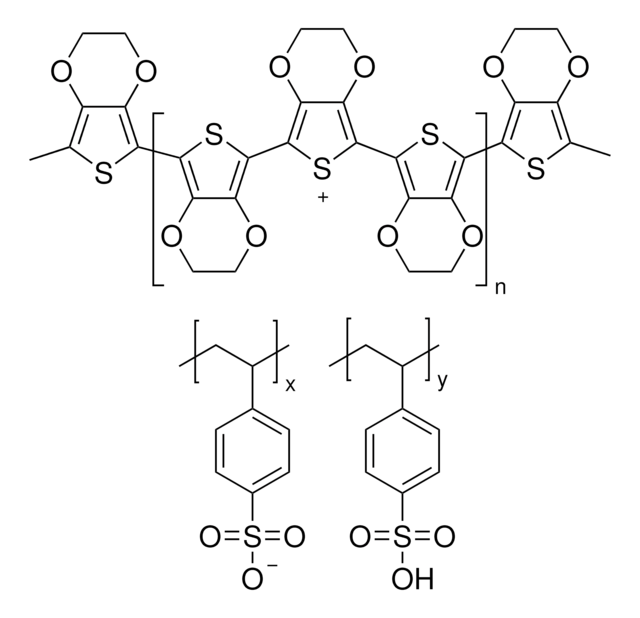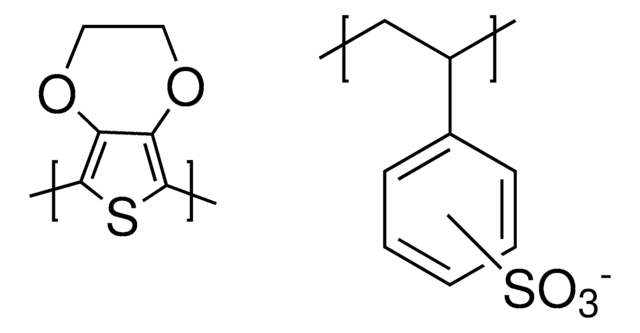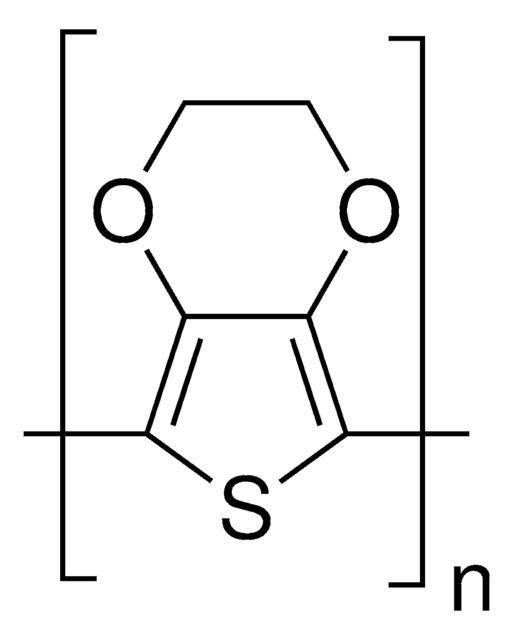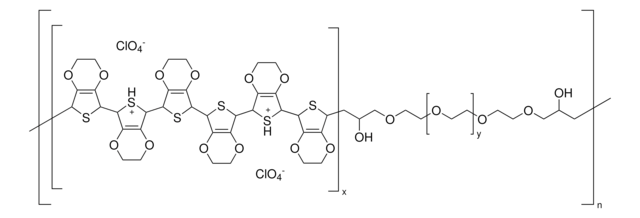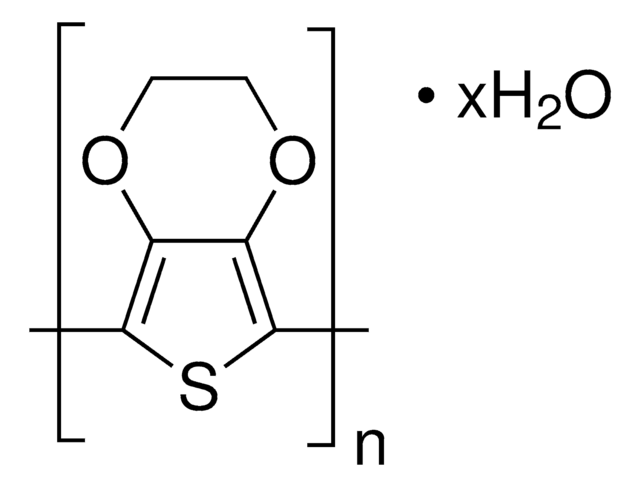768650
Poly(3,4-ethylenedioxythiophene)-poly(styrenesulfonate)
5.0 wt. %, conductive screen printable ink
Synonyme(s) :
Orgacon™ EL-P-5015, PEDOT:PSS, Poly(2,3-dihydrothieno-1,4-dioxin)-poly(styrenesulfonate)
About This Item
Produits recommandés
Niveau de qualité
Forme
paste
Caractéristiques du produit alternatif plus écologique
Design for Energy Efficiency
Learn more about the Principles of Green Chemistry.
sustainability
Greener Alternative Product
Concentration
5.0 wt. %
Résistance
≤130 Ω/sq
pH
1.5-2.0
Viscosité
≥50,000 mPa.s(20 °C)
Autre catégorie plus écologique
Température de stockage
20-25°C
Vous recherchez des produits similaires ? Visite Guide de comparaison des produits
Description générale
- low band gap
- good optical properties
- high conductivity
- low redox potential
- easy processing
- tunable film forming ability
Application
Curing temp. 130°C during 3 min
Informations légales
Mention d'avertissement
Danger
Mentions de danger
Conseils de prudence
Classification des risques
Eye Dam. 1 - Skin Irrit. 2
Code de la classe de stockage
10 - Combustible liquids
Classe de danger pour l'eau (WGK)
WGK 3
Point d'éclair (°F)
208.0 °F
Point d'éclair (°C)
97.77 °C
Faites votre choix parmi les versions les plus récentes :
Déjà en possession de ce produit ?
Retrouvez la documentation relative aux produits que vous avez récemment achetés dans la Bibliothèque de documents.
Les clients ont également consulté
Articles
A detailed article on conducting polymer materials for flexible organic photovoltaics (OPVs) applications.
Find advantages of inorganic interface layer inks for organic electronic & other applications.
The emerging field of printed electronics requires a suite of functional materials for applications including flexible and large-area displays, radio frequency identification tags, portable energy harvesting and storage, biomedical and environmental sensor arrays,5,6 and logic circuits.
Progress in Organic Thermoelectric Materials & Devices including high ZT values of >0.2 at room temperature by p-type (PEDOT:PSS) & n-type (Poly[Kx(Ni-ett)]) materials are discussed.
Notre équipe de scientifiques dispose d'une expérience dans tous les secteurs de la recherche, notamment en sciences de la vie, science des matériaux, synthèse chimique, chromatographie, analyse et dans de nombreux autres domaines..
Contacter notre Service technique